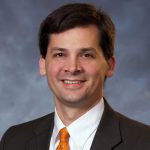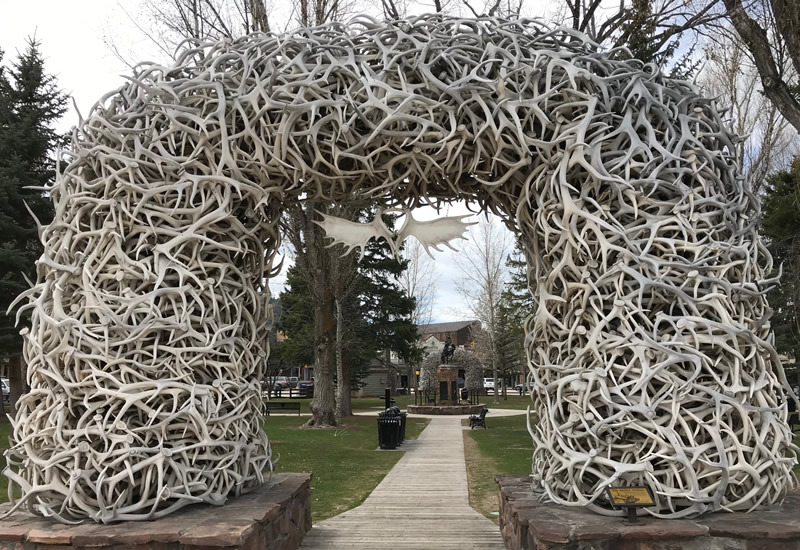INSIDE ISSUE 18.17 | APRIL 26, 2019
 NEWS: Teachers skipping school could test lawmakers, some say
NEWS: Teachers skipping school could test lawmakers, some say
BRIEFS: On the new Winthrop Poll, end of session, girl power, more
COMMENTARY, Brack: While I breathe, I wish and I hope
SPOTLIGHT: Francis Marion University
MY TURN, Gunn: Learn how to avoid enemies of change to realize success
FEEDBACK: On Hollings and 2020 Democrats
MYSTERY PHOTO: A different kind of archway
S.C. ENCYCLOPEDIA: Fort Prince George
NEWS: Teachers skipping school could test lawmakers, some say

By Lindsay Street, Statehouse correspondent | S.C. Senate Majority Leader Shane Massey is frustrated and “not happy.”
It’s a sentiment buzzing around Statehouse hallways this week as South Carolina public school teachers prepare to leave their classrooms for a rally in Columbia on Wednesday. At least one school district — Chester County — has already announced schools will be closed that day.

“The frustrating thing about this is if we were just doing nothing, maybe a walkout is more understandable … (but) the reality is that we are not doing nothing. We are making steps in the right direction,” the Edgefield Republican said. “I know it’s not as much [money] as what some people would like, but that has to be seen as a good faith movement in the right direction.”
The Columbia rally is being hosted by SCforEd, a grassroots group of educators that popped up last year and seeks a better environment for teachers in South Carolina classrooms.
“We really have tried to go through the process that everyone has told us to go through,” SCforEd board member and Richland County teacher Dottie Adams said Wednesday to Statehouse Report. “We haven’t seen the action that we were promised … We need people to understand what it is going to look like when there are no teachers.”
According to teacher recruitment program the Center for Educator Recruitment, Retention, & Advancement, 5,300 S.C. teachers left the profession in 2018-2019 and districts reported 621 vacant teaching positions in SC public school classrooms in 2018-2019.
Wheel or nail
Some at the Statehouse are saying Wednesday’s rally has the potential to work against teachers. Essentially, it comes down to whether lawmakers will see teachers as a squeaky wheel or the nail that sticks up and gets hammered.
“A walkout is not going to be received favorably,” Massey said Thursday to Statehouse Report.

S.C. Senate Education Chair Greg Hembree, R-Horry, who sided with teachers and voted against the state budget because it did not authorize a 5 percent raise, agreed.
“I’m having a hard time seeing how it helps anything,” Hembree said. He added that it could negatively impact students in the classroom. On Thursday, Gov. Henry McMaster urged teachers not to leave their classrooms.
But longtime Democratic House Rep. Gilda Cobb-Hunter of Orangeburg sided with teachers who plan to attend the rally.
“If I were the teachers, I wouldn’t worry much about upsetting the lawmakers,” she said. “Teachers are the ones who should be upset with what has not occurred in the General Assembly so far based on the issues they brought before us.”
What’s been done so far
This year was marked as the “Year of Education” by top legislative leaders. A massive reform bill was ushered through the House, and the state budget also was tweaked to reflect leaders’ top priority.
In the House and Senate versions of the budget, public school teachers received the largest piece of the new recurring dollars coming into state coffers. About a third of the nearly $500 million million of new dollars will go toward an across-the-board 4 percent teacher pay raise and also will raise the minimum starting salary of new teachers by more than 9 percent.
According to House staff, the pay increase for teachers would the largest since 1984. The pay increase would put the state above the Southeastern average for teacher pay, according to lawmakers.
The proposed $159 million of new money that is set aside for higher teacher pay is on top of an annual increase for teachers that is equal to 2 percent. Then there’s an additional state increase to health insurance plans to help employees shoulder the cost of rising premiums. Bottom line: Current teachers will get a 6 percent raise, plus a boost to help with health insurance.

To deal with other classroom issues such as over-testing, mandated teacher breaks and more, House Speaker Jay Lucas drafted a massive reform bill, which easily passed the House, but was slowed to a near stop in the Senate where it was pored over in 15 subcommittee meetings.
Hembree said this week the bill will come out of committee but may not make a floor vote before end of session on May 9. That would carry the debate to January, the second half of the 2019-2020 session.
‘Get it right’
And that’s where rallying teachers and senators appear to agree: Don’t rush through the education reform bill.
Adams said SCforEd wants the bill “to be tabled, and for teachers and lawmakers to come to the table over the summer that everybody is ready to get behind.”
“We want to get it right so next year something is ready to go, instead of next year having to fight the same battles over and over again,” she said. And that’s what Wednesday’s rally is all about, not just teacher pay (though many in the group say the 4 percent is not enough).
Among the top priorities are class-size reduction and further elimination of state-mandated testing.
Massey agreed that fixing the class-size issue should be a top priority for lawmakers in 2020. Since the Great Recession, the South Carolina state budget has had a proviso suspending a state law that mandates smaller class sizes. But Massey said it’s not as simple as repealing it, and lawmakers need to work at phasing it back in.
Cobb-Hunter also agreed the House reform bill needs work. She was one of four in the House to vote against the bill. She said there are good elements to the bill, but that there should be more work in 2020.
“Let’s take what we’ve done and improve upon it based on that input,” she said.
Hembree said regardless of political fallout from Wednesday’s rally, he will continue to push reform.
“I want to pursue reform because it’s the right thing to do,” he said.
- Have a comment? Send to: feedback@statehousereport.com
On the new Winthrop Poll, end of session, girl power, more
 By Lindsay Street, Statehouse correspondent | A new Winthrop Poll of South Carolina residents shows support remains strong among GOP voters for Republican leaders including President Donald Trump, U.S. Sen. Lindsey Graham and Gov. Henry McMaster.
By Lindsay Street, Statehouse correspondent | A new Winthrop Poll of South Carolina residents shows support remains strong among GOP voters for Republican leaders including President Donald Trump, U.S. Sen. Lindsey Graham and Gov. Henry McMaster.
One of the most divisive issues in the poll focused on the issue of paying reparations to the descendants of slaves. While only 31 percent of respondents overall said there should be reparations, 72 percent of black respondents and a majority of Democrats said there should be. Read more.
A few other takeaways:
- 45 percent of respondents said they approve of the state legislature’s handling of its job. More than 20 percent of the respondents said they were “not sure.”
- 52 percent of respondents said they approve of the job Gov. Henry McMaster is doing. Twenty percent said they were “not sure.”
- 56 percent of respondents said they think economic conditions in the country are getting better.
- A third of respondents said they are strongly in favor of getting their health coverage from a single government plan, while 38 percent strongly oppose. Forty-eight percent of respondents said they would strongly favor creating a plan that would be similar to Medicare, while another 23 percent say they somewhat favor the plan.
- Nearly two-thirds of respondents said they support local governments enacting their own plastic bag bans.
- See the full poll results here.
In other news:
Session winding down. The last regular day of legislative session is May 9. After ending a debate on abortion this week, the House appears to be coasting into summer. The Senate will spend its final days debating Santee Cooper before getting to smaller items on its calendar, according to Senate Majority Leader Shane Massey, R-Edgefield. Expect a decision on evaluating sale bids for the state-owned utility next week, he said.
Morris up for confirmation in the Senate. Gov. Henry McMaster’s nominee for the director of the Office on Aging, Stephen Morris, will face a floor vote in the Senate next week. On Wednesday, members of the Senate Veterans and Family Affairs Committee heard testimony from Morris, who has been accused of racism and is also seeking to “build morale” at the office. The committee sent the confirmation to the floor with no recommendation.

Girl power in powerful House committee. House Ways and Means Chairman Murrell Smith, R-York, is out of the country, and that means that during a Tuesday full Ways and Means Committee meeting, history will be made. Committee First Vice Chair Gilda Cobb-Hunter, D-Orangeburg, will likely become the first woman and first woman of color to chair the powerful financial committee, according to House staff. There is no way to completely confirm she is the first due to inadequate records, but the assertion is “likely accurate,” according to House Clerk Patrick Dennis. See the agenda here for the meeting.
New lawmaker joins ranks. The race to replace retired Rep. Mike Pitts, R-Laurens, is over. The seat was won by fellow Republican Stewart Jones. Jones defeated fellow Laurens County Council member, Democratic candidate Garrett McDaniel, by fewer than 500 votes in a special election this week. The swearing-in is not scheduled yet, but House staff said it could be done as soon as Tuesday.
Judges under the microscope. The Post and Courier is investigating disciplinary actions against judges in the state. Check out the initial story here, where they found zero judges in the state have been punished publicly despite more than 1,000 ethics complaints lodged against them in the past two decades.
Weekly update on Palmetto Priorities
 Throughout the legislative session, we have been providing relevant updates related to our list of Palmetto Priorities, which are 10 big policy areas where major progress is needed for South Carolina to escape the bottom of lots of lists. Over the last week:
Throughout the legislative session, we have been providing relevant updates related to our list of Palmetto Priorities, which are 10 big policy areas where major progress is needed for South Carolina to escape the bottom of lots of lists. Over the last week:
ENVIRONMENT: Offshore drilling halted indefinitely. The Trump Administration is backing off its plan to open Atlantic waters to offshore oil and gas testing after facing a setback in court over opening drilling in the Arctic. Interior Secretary David Bernhardt told The Wall Street Journal this week that the plans are sidelined indefinitely. The move earned praise from Republicans and Democrats alike in South Carolina — but U.S. Rep. Joe Cunningham, D-Charleston, tweeted that the “fight is far from over.” He is pushing for a law to enforce a ban in exploring and drilling for oil in the Atlantic. Read more. Coastal Conservation League Executive Director Laura Cantral said Thursday: “Let’s settle this debate once and for all. Congress should move quickly to pass Representative Joe Cunningham’s permanent ban on dangerous offshore drilling in Atlantic waters and off South Carolina’s coast.”
HEALTH CARE, Part I: House approves abortion ban. After long hours of debate, S.C. House members voted mostly along party lines to give final reading to a bill that seeks to ban most abortions once a fetal heartbeat is detected — a time frame of about six weeks of gestation. Kentucky, Ohio and Georgia have passed such bills this year. But the House bill faces an uphill climb in the Senate, where the final days of the session are ticking down.
HEALTH CARE, Part II: Senate punts on medical marijuana. The Senate Medical Affairs Committee this week did not advance a bill that would legalize medical marijuana in the state. The bill will likely be reworked over the summer break and brought to the floor in January. Read more.
HEALTH CARE, Part III: Youth vaping targeted. The Senate and the House have given favorable passage to H. 3420, which prohibits minors under the age of 18 from entering retail establishments that primarily sell tobacco products, alternative nicotine products or both — unless the minor is actively supervised and accompanied by an adult. The legislation, which doesn’t apply to typical convenience stores, provides for a more expansive definition of “alternative nicotine product” that specifically includes vaping. The bill is awaiting Gov. Henry McMaster’s signature.
EDUCATION: Waived days for inclement weather. The Senate and the House have given favorable passage to H. 3929, which allows school districts to waive inclement weather days beyond the three set out by state law in the 2018-2019 school year. The bill is awaiting Gov. Henry McMaster’s signature.
JOBS: Hemp act signed into law. McMaster signed into law this month an act that legalizes the hemp industry in South Carolina (H. 3449). Hemp and its more illicit cousin marijuana have become big economic drivers in the nation, according to this story in The New York Times.
POLITICS: Voting system evaluation panel enacted. McMaster signed into law joint resolution (H. 4157) to extend the deadline to submit offers for a solicitation for a statewide voting system and for the creation of a special evaluation panel to evaluate and score each proposal for new voting machines.
Looking ahead
Click below for other items coming up in the Statehouse:
Find any bill
- House bills
- Senate bills
- Have a comment? Send to: feedback@statehousereport.com
BRACK: While I breathe, I wish and I hope

By Andy Brack, editor and publisher | I wish there were ways to scare the living daylights drivers riding on my tail without them causing problems for or harm to other drivers.
 I wish one could gain the benefits of exercise without actually having to exercise.
I wish one could gain the benefits of exercise without actually having to exercise.
I wish it were possible to eat a lot of chocolate without ingesting any calories, fat or sugar.
I wish state and federal lawmakers could focus on real issues and get work done instead of punting, kernoodling, obfuscating, delaying and generally fiddling around.
I wish we had a president who respected and honored the U.S. Constitution.
I wish male legislators would stop making decisions impacting women’s bodies.
I wish there were a way to send a big electronic raspberry to anyone in tech support.
In fact, I wish there were a way to send a bigger electronic raspberry to anyone who is a cause of dysfunctional government.
I wish regular people and our leaders understood how taxes aren’t inherently evil and can fuel long-term investments that can do great good for a lot of people.
I wish I would win the lottery — just a small one on the first day after a big winner won hundreds of millions of dollars.
I wish I could talk with my grandparents again and learn about how they made it through the Depression.
I wish today’s Americans would emulate the country’s Greatest Generation and set aside the greed that has infected the nation’s soul.
I wish today’s Americans would respect the common good and shared sacrifice to make a better society.
I wish our presidential candidates would lead and plan for a future that includes economic opportunity for all and real health care that’s affordable and accessible for all.
I wish America could move beyond its continuing, divisive obsession with race and honor fellow citizens of all creeds and colors.
I wish Americans would remember we’re all immigrants, one way or another, and stop vilifying dreamers who want to live here.
I wish the American League didn’t have the designated hitter rule in baseball.
I wish people would remember that mobile phones are actually phones, not devices only for texting.
I wish all Americans eligible to vote actually went to the polls and participated more fully in our democracy.
I wish for a world without cul-de-sacs and more alleyways.
I wish climate change Luddites would wake up and understand how humans are ruining the earth.
I wish more people would read, smell the roses and listen to early morning calls of birds.
And I hope …
I hope rural South Carolina won’t be forgotten. It’s the soul of our state.
I hope my children and their children have a decent world in which to live.
I hope more people start dreaming big.
I hope more people will conserve precious resources, such as South Carolina’s special places, oceans, air and quality of life
I hope the U.S. House resists the trap of impeachment and that Americans vote out Donald Trump in 2020.
I hope that once he’s gone, he’ll be quiet like other past presidents. (I don’t, however, count on it.)
I hope Democrats can start listening to Republicans and that Republicans can do the same for Democrats. Bridging the partisan divide and discourating tribalism are the only real ways for the country to grow.
I hope our intelligence and technology communities will be able to break the backs of Russian and Chinese interference in our elections and economy.
I hope South Carolina legislators can really start fixing on priorities such as eradicating generational poverty, reforming education so people can get better jobs, broadening access to health care, making communities safer and growing economic opportunity. I’m tired of our leaders kicking the can on continually persistent issues.
I wish somebody would grant my wishes and hope South Carolina will open her eyes to our possibilities.
- Have a comment? Send to: feedback@statehousereport.com.
SPOTLIGHT: Francis Marion University
 The public spiritedness of our underwriters allows us to bring Statehouse Report to you at no cost.
The public spiritedness of our underwriters allows us to bring Statehouse Report to you at no cost.
We’re happy this week to shine our spotlight on Francis Marion University, a public university located in Florence, S.C. It was founded in 1970 with a mission to provide the people of the Pee Dee, and of South Carolina, with high quality, yet accessible, university education. FMU has stayed true to that mission for nearly 50 years. In any given year, more than 95 percent of the university’s students are South Carolinians, and FMU is, by most measures, the most affordable college in the state.
Francis Marion University is, of course, named for Revolutionary War hero, General Francis Marion, who was nicknamed “The Swamp Fox” for his uncanny ability to use terrain, local knowledge and just plain old South Carolina common sense to outfox the British. Today, FMU prides itself on providing a strong liberal arts education for its 4,000 students, while at the same preparing them for careers in a broad range of fields.
The University offers professional schools in health care, education and business, as well as graduate programs in business, education and psychology. FMU’s new School of Health Sciences is adding new programs, designed to help deliver critical medical services to the community, on an almost annual basis, so great is the demand by students and the need in our region and state. Recent undergraduate additions to the University as a whole include Health Care Management and Industrial Engineering. The latter, just begin in 2014, is already one of the fastest-growing majors on campus.
The campus is situated on over 400 wooded acres of beautiful foliage and landscaping. A significant campus presence in historic downtown Florence is also developing. FMU’s Performing Arts Center is located there along with the Carter Center for Health Sciences, and the FMU Recording Studio, The University recently acquired more downtown property near the Carter Center, which will help support future academic expansions.
FMU has managed to grow while at the same time providing South Carolinians with, as noted, an affordable university education. FMU’s total net cost — tuition plus room, board and other fees, less scholarships and grants awarded — is South Carolina’s lowest, and by a considerable margin, according to calculations performed by a third party, CollegeFactual.com. FMU has managed this unusual balance of quality and affordability by avoiding capital debt, minding administrative costs carefully, and developing a culture of giving among its many friends and supporters in the Pee Dee and beyond.
- To learn more about Francis Marion, visit online at fmarion.edu.
GUNN: Learn how to avoid enemies of change to realize success

By Anton Gunn, republished with permission | Recently, I have been focused on success. Particularly, I am focused on the changes you need to make to achieve success in your life. Change is the operative word today. Change is a constant in our lives. Nothing in our lives stays the same. Everything changes. Some changes happen on their own. Other changes happen when we decide to make them happen.

I want you to be aware of the enemies of change. Yes, that’s right. I want you to be aware of the nemeses of the improvements you want to make in your life. You must avoid them at all cost because they can stifle your success. You must learn how to defend and defeat them. Here they are.
The Five Enemies of Change
- Fear. Don’t be apprehensive or afraid of making the change. A change will always happen. It will happen for you or to you. Leaders don’t let change happen to them, they make it happen for them.
- Analysis. It’s very important to plan the changes that you want to make. However, don’t over plan and over analyze the plan so much that you never get to the execution phase. Too many people suffer from paralysis by analysis. Leaders always take decisive action.
- Hesitation. Indecision, vacillation and reluctance are direct impediments to your success. Hesitation indicates a lack of confidence in what you want to change. Lasting change requires you to have confidence. Confidence is a product of your belief system. Raise your belief system and you won’t fall victim to hesitation.
- Procrastination. This is the war between your mindset and your willpower. You mentally know what you need to do but your will tells you that tomorrow is a better day to change. Then tomorrow never comes. Again, leaders always take decisive action…. TODAY. Not tomorrow but today.
- Resignation. Quitting is the biggest enemy of change. You can’t create change if you quit. If you don’t quit, change will eventually come. Don’t quit on yourself. Don’t quit on the change. Don’t let the enemy win.
Keep your eyes open for these enemies as you work towards your desired change. When you can see these enemies, they are much easier to defeat. They are easier to defeat because you now have a plan to defeat them.
You can do it. Let’s do it together!
Anton Gunn, a former S.C. state representative, is chief diversity officer at the Medical University of South Carolina Health System. A former senior official in the Obama administration at the U.S. Department of Health and Human Services, he is a nationally-recognized leadership development and health care reform expert.
- Have a comment? Send to: feedback@statehousereport.com..
FEEDBACK
Enjoyed piece on Fritz Hollings:
To the editor:
![]() My wife and I retired from jobs in the Chicago area and decided to move here because my sister-in-law lives in the area. It is a beautiful place and we have not once regretted the move.
My wife and I retired from jobs in the Chicago area and decided to move here because my sister-in-law lives in the area. It is a beautiful place and we have not once regretted the move.
The reason I am writing is that I was so impressed with your article about the late Senator and Governor Fritz Hollings. Reading what you wrote made me want to look into more about Sen. Hollings and it appears that he is one of those people who is just a wonderful individual. Apparently he was a politician who believed his job was to work for the people who elected him and he did just that. He should be the model for what a politician should be.
I always read your article and I want to thank you for making me aware of a great politician from the State of South Carolina.
— Alan F. Szablewski, Hartsville, S.C.
Dems are misjudging electorate
To the editor:
I agree with you. The Dems are misjudging the American electorate. They need to focus on running someone who can beat Trump and stop trying to “out liberal” each other. The idea of reparations for slavery — although we need to do a MUCH better job of giving African Americans a real shot at the American dream — is absurd. If we are going to do reparations for slavery, why aren’t we providing reparations to our Native Americans who are in worse shape that African Americans?
So many of the Dems’ ideas sound wonderful, but many of them will not find support among our American voters.
— Carol Hillman, Bluffton, S.C.
Send us your thoughts … or rants
We love hearing from our readers and encourage you to share your opinions. But you’ve got to provide us with contact information so we can verify your letters. Letters to the editor are published weekly. We reserve the right to edit for length and clarity. Comments are limited to 250 words or less. Please include your name and contact information.
- Send your letters or comments to: feedback@statehousereport.com
MYSTERY PHOTO: A different kind of archway

It’s a pretty safe bet to suggest that this photo probably wasn’t taken in South Carolina. But where is it? Send your guess about the location of this photo to feedback@statehousereport.com. And don’t forget to include your name and the town in which you live.
Our previous Mystery Photo
 The subject of our April 19 mystery, “What’s this old photo?” proved to be pretty tough. Several readers thought it was an old photo of a Duke’s mayonnaise factory in Greenville, which was an outstanding guess. Others guessed a cane syrup bottler or the Blenheim Ginger Ale plant in Dillon County. In fact, this Mystery Photo portrays an old glass factory in Laurens County during the Depression.
The subject of our April 19 mystery, “What’s this old photo?” proved to be pretty tough. Several readers thought it was an old photo of a Duke’s mayonnaise factory in Greenville, which was an outstanding guess. Others guessed a cane syrup bottler or the Blenheim Ginger Ale plant in Dillon County. In fact, this Mystery Photo portrays an old glass factory in Laurens County during the Depression.
Congratulations to three intrepid readers who correctly identified the photo: Karen Owens of Columbia; George Graf of Palmyra, Va.; and Dale Rhodes of Richmond, Va..
Hard work pays off
Graf told us gave up on identifying the photo at one point after a lot of research on glass jar production in South Carolina. But after a break, he went back to the challenge and “was able to see that the jars had a certain texture. I did research on that and found the jars are called waffle textured. So, when I looked at waffle-textured jars, I saw one that looked promising and it was made in Laurens S.C.. I then researched historical glass jar photos in Laurens and after perseverance, I got the image in your mystery photo.”
He also sent this context about the Laurens Glass Works: “When deposits of the mineral silica, important for glassmaking, were found a few miles north of Laurens, a group of local businessmen organized Laurens Glass Works in 1910. Nathaniel B. Dial, who later became a U.S. senator, was among the organizers and was its first president. The local silica was never mined, however, because shipping it from the eastern part of South Carolina proved more cost-efficient.
“Laurens Glass struggled during its early years. Skilled glassblowers had to be brought in from Ohio and Pennsylvania. When the company was reorganized in 1913, Nathaniel Dial’s nephew Albert was named president and served until 1928. Shortly after this reorganization, Laurens Glass obtained the first license in the United States to manufacture Coca-Cola bottles. The company remained one of the few suppliers of Coke bottles until after World War II. By the mid-1940s the automated Laurens Glass had more than four hundred employees.
“Between 1959 and 1968 Laurens Glass expanded, opening plants in Henderson, North Carolina, and Ruston, Louisiana. As the soft drink industry switched to nonglass containers, the company’s main product became food jars. In 1968 the company merged with the Indian Head Corporation of Delaware, which moved its glass container headquarters to Laurens in the mid-1970s. Additional mergers further affected company operations, with subsequent corporate owners deeming the Laurens facility no longer cost-effective for modern manufacturing. In 1996 the Laurens Glass plant closed, putting four hundred people out of work.”
- Send us a mystery: If you have a photo that you believe will stump readers, send it along (but make sure to tell us what it is because it may stump us too!) Send to: feedback@statehousereport.com and mark it as a photo submission. Thanks.
S.C. ENCYCLOPEDIA
HISTORY: Fort Prince George

S.C. Encyclopedia | Fort Prince George was constructed in the fall of 1753 under the supervision of royal governor James Glen. The South Carolina Provincial Assembly considered a fortification amid the lower towns of the Cherokee vital to stabilize conditions on the frontier of the province. The fort lay on the east bank of the Keowee River near the Cherokee village of the same name. It was a one-hundred-foot square ditched fortification, surrounded by palisade-topped earthen walls and with a bastion in each of its corners. The interior sheltered a guardhouse, a storehouse, a kitchen, a magazine, a barracks, and the commandant’s residence. Completely rebuilt in 1756, Fort Prince George was garrisoned by a detachment from one of three British Independent Companies.
Since 1758 relations between the Cherokees and the crown had been deteriorating. A peace delegation of Cherokee chiefs was seized in Charleston and then sent to Fort Prince George as hostages. By January 1760 relations between the Cherokees and the crown had become strained to the point of war. Preparations were made inside the stronghold for an attack. On February 16, 1760, the commander of Fort Prince George, Lieutenant Richard Coytmore, was lured outside the walls for a parley and mortally wounded. His outraged men retaliated by executing several hostages confined in the fort. The fortification was besieged sporadically for the next four months, until a relief force under Colonel Archibald Montgomery arrived in June. The fort served as the starting point for the 1762 campaign against the Cherokee middle towns. In 1764 elements of the Sixtieth Regiment of Foot, also known as the Royal American Regiment, assumed garrison duty. Mounting tensions between Great Britain and her North American colonies, however, led to the abandonment of the outpost in 1768.
In the early 1960s Duke Power Company planned construction of a large nuclear power facility in the area of Fort Prince George. In late 1966 assistant state archaeologist John D. Combes began excavating the site until it was flooded by the waters of Lake Keowee in 1968.
— Excerpted from an entry Samuel K. Fore. This entry may not have been updated since 2006. To read more about this or 2,000 other entries about South Carolina, check out The South Carolina Encyclopedia, published in 2006 by USC Press. (Information used by permission.)
Book highlights how S.C. can do better
 We Can Do Better, South Carolina! offers incisive commentaries by editor and publisher Andy Brack on the American South, the common good and interesting South Carolina leaders, such as former U.S. Sen. Fritz Hollings, civil rights advocate Septima Clark, former S.C. Gov. David Beasley and more. There also are discussions on civil rights struggles with which the Palmetto State continues to grapple. as well as commentaries on politics, governments, the hangovers of South Carolina’s past and her future opportunities.
We Can Do Better, South Carolina! offers incisive commentaries by editor and publisher Andy Brack on the American South, the common good and interesting South Carolina leaders, such as former U.S. Sen. Fritz Hollings, civil rights advocate Septima Clark, former S.C. Gov. David Beasley and more. There also are discussions on civil rights struggles with which the Palmetto State continues to grapple. as well as commentaries on politics, governments, the hangovers of South Carolina’s past and her future opportunities.
We Can Do Better, South Carolina! is available exclusively as a Kindle book for $7.99. Click here to purchase a Kindle copy. A paperback version will be ready for order isoon.
- If you have a comment or questions about the book, please let us know at: feedback@statehousereport.com.
ABOUT STATEHOUSE REPORT
Statehouse Report, founded in 2001 as a weekly legislative forecast that informs readers about what is going to happen in South Carolina politics and policy, is provided to you at no charge every Friday.
- Editor and publisher: Andy Brack, 843.670.3996
- Statehouse correspondent: Lindsay Street
More
- Mailing address: Send inquiries by mail to: P.O. Box 22261, Charleston, SC 29407
- Subscriptions are free: Click to subscribe.
- We hope you’ll keep receiving the great news and information from Statehouse Report, but if you need to unsubscribe, go to the bottom of the weekly email issue and follow the instructions.
- © 2019, Statehouse Report. All rights reserved.
















On Andy Brack’s wishlist: When a motorist is too close behind my car I turn on the emergency lights. A few haven’t caught on but most back-off.